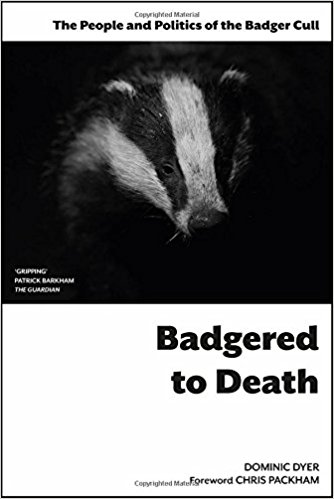You can build what you want,
providing...
| Badgered to Death |
 |
Dom Dyer's polemic on the toxic mix of farming, lobbying and politics and how fake-science lead to badger culls in England. Click here to buy:
Paperback edition
|
10th June 2003 - The Telegraph
. . . bus passes, doctor's surgeries, free
bicycles and a new home for the bats and badgers. Christopher
Middleton reports on the increasingly bizarre trade-offs between
developers and local councils
Once upon a time, developers just built houses. These
days, their responsibilities extend way beyond bricks and mortar and
into the provision of bus passes, free bicycles and regular
inspections of badger droppings.
It's called "planning gain" and it's the strangely
medieval system whereby - in return for being granted permission to
build - developers have to agree to a list of demands drawn up by
local councillors.
The number-one request for any council is the
provision of affordable housing, to be rented out by either the
local authority or a housing association. Sometimes this can account
for as little as 5 per cent of the total development, sometimes as
much as 25 or 30 per cent (Mayor Livingstone's target for London is
50 per cent).
Then there is usually the odd demand bunged in for a
sports centre, or a GP's surgery, or, as in one new Docklands
development, a fully functioning fire station with firefighters'
sleeping quarters attached. However, as well as all these
conventional community facilities, councils are now starting to tack
some altogether quirkier extras on to the bottom of their wish
lists.
"There's an estate in the West Midlands where the
housing developers have been required to give out free bus passes to
all the residents," says Pierre Williams, of the House Builders
Federation. "The council say it's because they want to encourage
greater use of public transport."
It is this same desire to keep cars off the road
which has prompted a local authority in Gloucestershire to insist
that developers Bellway give away two free bicycles with each
property they sell on their Walnut Grove estate. The same company is
also paying for police speed cameras on a stretch of road beside one
of its West Country developments, as well as forking out for the
reconstruction of an entire Victorian lake on a 300-home site
outside Swansea.
Talk to any private developer and it will have
similar stories of eccentric planning-gain stipulations, involving
everything from putting up statues to installing skateboard ramps.
But it is not just humans that housebuilders have to accommodate;
it's also the birds and bees.
This is the point at which the negotiable
requirements of planning gain (under Section 106 of the Town and
Country Planning Act) meet the rather more rigid strictures of the
Wildlife and Countryside Act. This piece of legislation stipulates
that any environmental disruption must be counterbalanced by
provision for the flora and fauna that are being displaced. Which is
why 20 square metres of common, spotted orchids have had to be
uprooted en masse from a housing development at Greenhaugh West
Moor, in Northumberland, and transported to the Rising Sun Country
Park at nearby Wallsend, still encased in soil.
It is also why ecologists (hired by the developers)
spend many hours at the 3,000-home Camborne Village development, in
South Cambridgeshire, peering at little piles of badger dung. "The
location of the droppings supplies vital information about where the
badgers see the boundaries of their territory," explains David
Denman, of English Nature. "By discovering the extent of their
patch, we can get a better idea of how to accommodate the various
badger populations in the area."
It turns out, in fact, that not only do badgers get
the chance to put their mark on where they would like to live, but
they also get their own transport network. In several cases, where
Man and Brock have come into conflict over a particular
thoroughfare, the result has been the construction of a whole
network of underground badger tunnels, leading the animals in and
out of their setts, safe from the traffic overhead.... continued
Copyright
|
